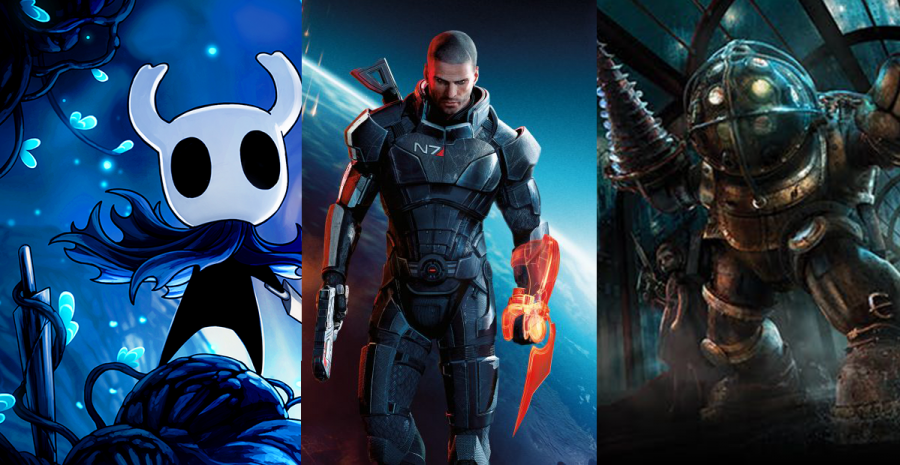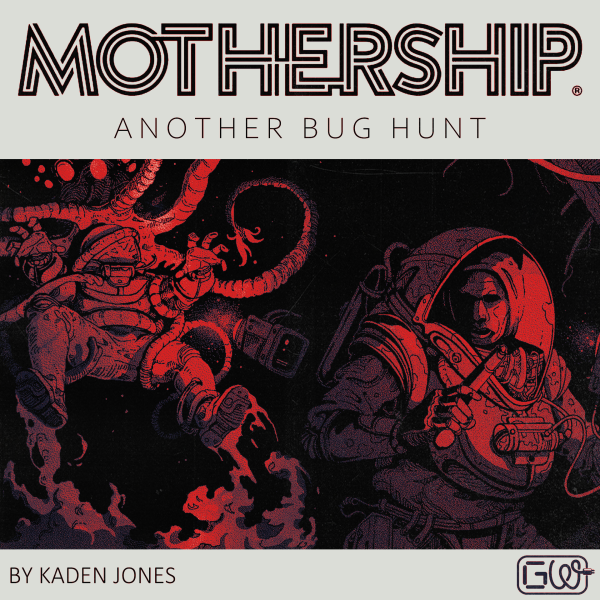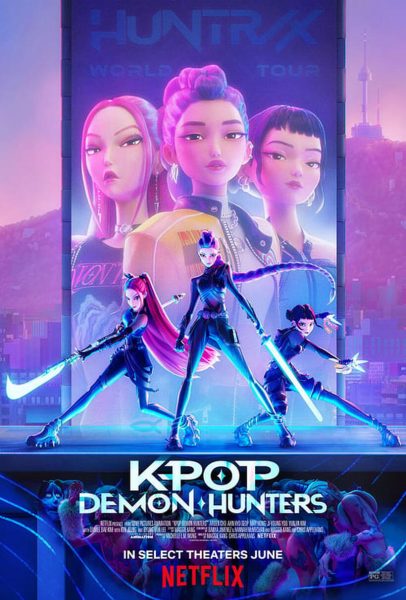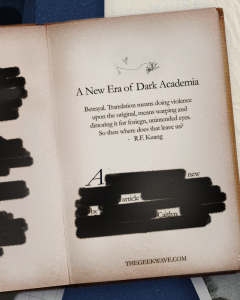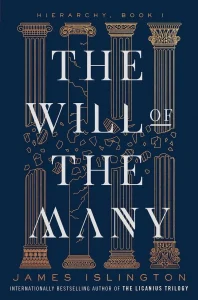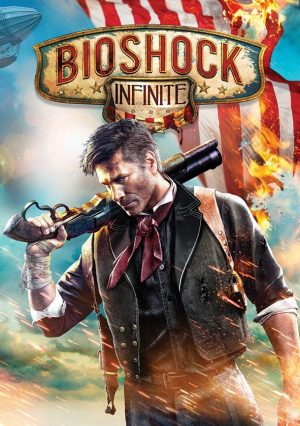The Illusion of Control
September 23, 2020
*Warning* This article contains spoilers to Hollow Knight and Bioshock Series
We often question our roles in life. We think about what we do, why we do it, and what drives us to do it. One of the many pillars of all art is intent, or what we hope to achieve by performing acts, which can boil down to a basic human desire to control, which, as we see, leaks into the world around us. We see “Big Brother” posters and fear them, for we fear the loss of free will or the control we have over our own lives.
Are our video games – specifically, the characters in them – subject to that same desire?
This question arose when digging into the lore of Team Cherry’s wonderful 2-D platformer, “Hollow Knight.” In the side-scrolling action-adventure, you play as The Knight, coming into an abandoned town with a deep-rooting cavern system and an even deeper battle between the free will of the inhabitants and the bright-orange infection of The Radiance. There are hours – and I mean hours – of content on the lore of the game. The central argument and theme of the game revolved around the internal struggle of the actual Hollow Knight and the desire of the glorified clone to defend the Kingdom of Hallownest, even at the cost of his free will. As the player finds out, the main character is the true Hollow Knight, which opens a whole other set of lore-fueled questions, but it raises an interesting conundrum when thinking about who has the control in a video game.
Who controls the Hollow Knight? You might say, “Me, stupid,” and on a base-level, you’re right. You decided to open the game, start it, and jump around with your nail and slash through the catacombs. However, there’s another game being played under the surface, and to decipher it, we must remember what we learned in the depths of Rapture.
In Bioshock, this very question comes center stage. Anyone familiar with video games will know the infamous “would you kindly” conundrum, and some might play it off as an interesting twist in a psycho-thriller that doesn’t warrant a deeper conversation. I am not one of those people. Does the message of the game – that we are merely subject to the things the game tells us – disappear if you remove the token phrase? And if not, then who’s really in control?
I’m getting pretty existential pretty quick, so let me give some context. There is something to be said about the idea that video games are, for lack of a better term, alive. Before you get all Terminator on me, I don’t mean that your Xbox is going to become the T-1000 and vaporize you mid-Warzone game. Mark Brown of Game Maker’s Toolkit (GMTK) talked about this idea in the development community of “Following the fun.” Basically, it’s a design principle in which the overall mission of the game is affected by what the playtesters and devs find to be fun about the game. This can often change the course of many indie games that have the freedom to stretch outside their intended paths, but what exactly drives this? Brown describes “Following the fun” as “looking to the game itself to find out where the development should lead.” Now, I’m not equating that to sentience, but it speaks to an interesting effect where the developers engage in a conversation with the game, more so traditional development.
We also see this dialogue take place in other situations throughout games. A breakthrough in video game immersion was the induction of the choice system, where the character could have different reactions to situations or questions based on input from the player. I hesitate to call it a “decision made by the character/player” because there are cases against both of those points, namely residing with Commander Shepard and the iconic dialogue wheel in the Mass Effect series. When Shepard is faced with a crossroads, he has two options; the Paragon (good) and Renegade (not as good). This choice is fine, but what is actually said isn’t really up to the player. The player can pick which direction they want to answer, and Shepard fills in the rest with his dialogue. In a way, Shepard takes the control away from the player because the player can’t actually put the words in Shepard’s mouth. This can lead to conversations taking unexpected turns because the renegade commander said some not-so-nice remarks that the player had no intention of saying. In this situation, who has the control?
With all that said, our initial question becomes even less clear. When you boot up your computer to play a classic PC game, who has control over the situation? Is it you, the player, holding the controller, the developer, acting as puppet master, and orchestrating the chaos around you, or is the game itself dictating more than we might initially expect? This constant conversation between these three entities is paramount when discussing this idea – or illusion – of control. In a way, this brings the practice of making video games closer to that of an artist and their painting, where it is just as much an interaction between artist and canvas as it is the act of the artist putting brush to paper itself. When we press ‘A’ to jump, the only reason we think we’ll jump is that it’s happened every other time we pressed ‘A’. But what happens when our control is taken away. When the outcome is no longer guaranteed?

